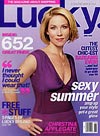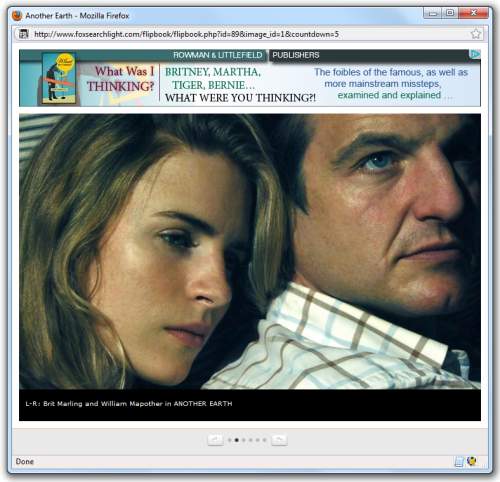Click for other posts referring to "Alignment."
Wednesday, May 15, 2024
Sunday, March 12, 2023
Colossus: The Forbes Project*
Forbes magazine on April 1, 2022 —
* Title suggested by "Colossus: The Forbin Project" (1970)
Thursday, August 12, 2021
A Square Crystal Paperweight
Friday March 31, 2006
|
Tuesday, February 24, 2015
Amy’s After-Party
Tuesday, August 13, 2013
Plan 9
(Continued from August 28 last year)
Backstory—
Reflections from today's date, August 13, in 2003, that included
the following remark by Aldous Huxley on an artist's work:
"All the turmoil, all the emotions of the scenes
have been digested by the mind into a
grave intellectual whole. It is as though
Bach had written the 1812 Overture."
Related art—
Josefine Lyche, from her 2013 Crackquarelle series:

Steven H. Cullinane, The Story of N ,
from The Misalignment of Mars and Venus series:

See, too, previous posts on The Story of N.
Sunday, July 28, 2013
Sermon
(Simplicity continued)
"Understanding a metaphor is like understanding a geometrical
truth. Features of various geometrical figures or of various contexts
are pulled into revealing alignment with one another by the
demonstration or the metaphor.
What is 'revealed' is not that the alignment is possible; rather,
that the alignment is possible reveals the presence of already-
existing shapes or correspondences that lay unnoticed. To 'see' a
proof or 'get' a metaphor is to experience the significance of the
correspondence for what the thing, concept, or figure is ."
— Jan Zwicky, Wisdom & Metaphor , page 36 (left)
Zwicky illustrates this with Plato's diamond figure
from the Meno on the facing page— her page 36 (right).
A more sophisticated geometrical figure—
Galois-geometry key to
Desargues' theorem:
| D | E | F | |
| S' | P | Q | R |
| S | P' | Q' | R' |
| O | P1 | Q1 | R1 |
For an explanation, see
Classical Geometry in Light of Galois Geometry.
Wednesday, July 20, 2011
What Was I Thinking?
An 8:07 AM check of a link in this morning's 8 AM post,
The Misalignment of Mars and Venus, showed an ad—
— that led to the website for the upcoming film "Another Earth."
At that website is an image that might well be titled…
"Mars and Venus Realigned"—
Cover Art
The Misalignment of Mars and Venus
A death in Sarasota on Sunday leads to a weblog post from Tuesday
that suggests a review of Dan Brown's graphic philosophy—
|
From The Da Vinci Code : Langdon pulled a pen from his pocket. “Sophie are you familiar with the modern icons for male and female?” He drew the common male symbol ♂ and female symbol ♀. “Of course,” she said. “These,” he said quietly, are not the original symbols for male and female. Many people incorrectly assume the male symbol is derived from a shield and spear, while the female represents a mirror reflecting beauty. In fact, the symbols originated as ancient astronomical symbols for the planet-god Mars and the planet-goddess Venus. The original symbols are far simpler.” Langdon drew another icon on the paper. ∧
“This symbol is the original icon for male ,” he told her. “A rudimentary phallus.” “Quite to the point,” Sophie said. “As it were,” Teabing added. Langdon went on. “This icon is formally known as the blade , and it represents aggression and manhood. In fact, this exact phallus symbol is still used today on modern military uniforms to denote rank.” “Indeed.” Teabing grinned. “The more penises you have, the higher your rank. Boys will be boys.”
Langdon winced. “Moving on, the female symbol, as you might imagine, is the exact opposite.” He drew another symbol on the page. “This is called the ∨ Sophie glanced up, looking surprised. Langdon could see she had made the connection. “The chalice,” he said, “resembles a cup or vessel, and more important, it resembles the shape of a woman’s womb. This symbol communicates femininity, womanhood, and fertility.” |
Langdon's simplified symbols, in disguised form, illustrate
a musical meditation on the misalignment of Mars and Venus—

This was adapted from an album cover by "Meyers/Monogram"—
See also Secret History and The Story of N.
Friday, July 11, 2008
Friday July 11, 2008
continued from July 3
"I say high, you say low,
you say why,
and I say I don't know.
Oh, no.
You say goodbye
and I say hello."
— Hello Goodbye *
Thanks to NBC Nightly News tonight for a story on the following:
Manhattanhenge is an evening when "the Sun sets in exact alignment with the Manhattan grid, fully illuminating every single cross-street…."
Full Sun on grid:
Friday, July 11–
8:24 PM EDT
Related material from the late
Tom Disch on St. Sarah's Day:
| Saturday, May 24th, 2008 9:15 pm
What I Can See from Here
I face east toward the western wall Of a tall many-windowed building Some distance off. I don't see the sunset Directly, only as it is reflected From the facade of that building. Those familiar with Manhattan know How the evening sun appears to slide Into the slot of any east/west street, And so its beams are channeled Along those canyon streets to strike Large objects like that wall And scrawl their anti-shadows there, A Tau of twilight luminescence At close of day. I've seen this For some forty years and only tonight Did I realize what I had been looking at: The way god tries to say good-bye. |
* Walter Everett, in The Beatles as Musicians , has a note on the song "Hello Goodbye"–
"189. The extra-long coda… was referred to as the 'Maori finale' from the start…."
(Updated Feb. 27, 2013, to replace an incorrect reference in the footnote
to a book by Stanley Cavell instead of the correct book, by Walter Everett.)
Sunday, May 27, 2007
Sunday May 27, 2007
On the ABC-conjecture in number theory:
“We hope to elucidate the beautiful connections between elliptic curves, modular forms and the ABC–conjecture.” —Dorian Goldfeld (pdf)
An Edinburgh postgraduate student on the conjecture:
“… abc brings us full circle to Fermat’s Last Theorem….” —Graeme Taylor at Everything2.com
I regret I can add nothing to Taylor’s admirable exposition and to Goldfeld’s “beautiful connections” except the following observation of a rather ugly connection.
The previous Log24 entry, from yesterday afternoon, related the May 18 “details” entry to Friday’s PA evening lottery number, 005. A followup seems (if only to honor the madcap tradition of John Nash) to be called for. The PA evening number yesterday evening, Saturday, was 443. Nash, in his younger days, might have been pleased to note that this number is associated (if only by coincidence) with a topic Woit mentioned earlier yesterday– Fermat’s famed conjecture:

in The Annals of Mathematics,
2nd Ser., Vol. 141, No. 3 (May, 1995)
This is the first page of a rather
famous paper by Andrew Wiles.
Wednesday, August 2, 2006
Wednesday August 2, 2006

connect with anything else:
existence is infinitely
— Opening sentence of
Martha Cooley’s The Archivist
“Frere Jacques, Cuernavaca,
ach du lieber August.”
— John O’Hara, Hope of Heaven, 1938
Wednesday, May 3, 2006
Wednesday May 3, 2006
continued
— Rebecca Goldstein,
Mathematics and
the Character of Tragedy
The winning numbers
for Tuesday, May 2–
the feast of
St. Athanasius:
“You gotta be true to your code”
— Sinatra (see previous entry)
| Dewey Decimal Code:
703 The Arts: Related material: For the arts, see |
“All persons living and dead are purely coincidental….”– Kurt Vonnegut, epigraph to Bagombo Snuff Box
* For instance,
David Auburn in Proof,
which also involves
Dewey decimal numbers
Friday, March 31, 2006
Friday March 31, 2006
Women's History Month continues…
Ontology Alignment
"He had with him a small red book of Mao's poems, and as he talked he squared it on the table, aligned it with the table edge first vertically and then horizontally. To understand who Michael Laski is you must have a feeling for that kind of compulsion."
— Joan Didion in the
Saturday Evening Post,
Nov. 18, 1967 (reprinted in
Slouching Towards Bethlehem)
"Or were you," I said.
He said nothing.
"Raised a Catholic," I said.
He aligned a square crystal paperweight with the edge of his desk blotter.
— Joan Didion in
The Last Thing He Wanted,
Knopf, 1996
"It was Plato who best expressed– who veritably embodied– the tension between the narrative arts and mathematics….
Plato clearly loved them both, both mathematics and poetry. But he approved of mathematics, and heartily, if conflictedly, disapproved of poetry. Engraved above the entrance to his Academy, the first European university, was the admonition: Oudeis ageometretos eiseto. Let none ignorant of geometry enter. This is an expression of high approval indeed, and the symbolism could not have been more perfect, since mathematics was, for Plato, the very gateway for all future knowledge. Mathematics ushers one into the realm of abstraction and universality, grasped only through pure reason. Mathematics is the threshold we cross to pass into the ideal, the truly real."
— Rebecca Goldstein,
Mathematics and
the Character of Tragedy
Friday, June 4, 2004
Friday June 4, 2004
 This entry was inspired by the following…
This entry was inspired by the following…
1. A British blogger’s comment today. This man, feeling like a miserable failure himself, was cheered up by the following practical joke: “If really fed up you could try putting in, miserable failure, (no quote marks) into Google and pressing the ‘I’m feeling lucky’ button.”
2. The page, excerpts from which are shown above, that you get if you put lucky (no quote marks) into Google and press the “I’m feeling lucky” button.
3. My own entries of May 31 on Language Games and of June 1 on language and history, Seize the Day and One Brief Shining Moment.
4. The related June 1 entry of Loren Webster, Carpe Diem, on the Marilyn Monroe rose. Images from Carpe and Shining are combined below:

John F. Kennedy
Aldous Huxley.
7. Yesterday’s entry about the alignment of stars, combined with the alignment of Venus with Apollo (i. e., the sun) scheduled for June 8.
All of the above suggest the following readings from unholy scripture:
A. The “long twilight struggle” speech of JFK
B. “The Platters were singing ‘Each day I pray for evening just to be with you,’ and then it started to happen. The pump turns on in ecstasy. I closed my eyes, I held her with my eyes closed and went into her that way, that way you do, shaking all over, hearing the heel of my shoe drumming against the driver’s-side door in a spastic tattoo, thinking that I could do this even if I was dying, even if I was dying, even if I was dying; thinking also that it was information. The pump turns on in ecstasy, the cards fall where they fall, the world never misses a beat, the queen hides, the queen is found, and it was all information.”
— Stephen King, Hearts in Atlantis, August 2000 Pocket Books paperback, page 437
C. “I will show you, he thought, the war for us to die in, lady. Sully your kind suffering child’s eyes with it. Live burials beside slow rivers. A pile of ears for a pile of arms. The crisps of North Vietnamese drivers chained to their burned trucks…. Why, he wondered, is she smiling at me?”
— Robert Stone, A Flag for Sunrise, Knopf hardcover, 1981, page 299
Thursday, June 3, 2004
Thursday June 3, 2004
STAR WARS
Continued…
|
Today’s New York Times story on Richard Helms, together with my reminiscences in the entry that follows it below, suggest the following possibility for symbol-mongering:
|

Not even the most powerful
can alter the alignment
of the stars.
In a related story….
The Good Bad Boy
By Alison Lurie
“Today, many people have the illusion that they know who Pinocchio is. They think that he is a wooden marionette who becomes a human boy; that he was swallowed by a huge fish; and that when he told lies his nose grew longer. These people are right, but often in a very limited way. They know Pinocchio only from the sentimentalized and simplified Disney cartoon, or the condensed versions of his story that are thought more suitable for children. The original novel by Carlo Collodi, which today survives mainly in scholarly editions, is much longer, far more complex and interesting, and also much darker.”
— The New York Review of Books, June 24, 2004












